Let Go of Diet Brain For Sustainable Weight Loss
- Donna J
- Nov 5, 2024
- 5 min read
Letting go of Diet Brain is a deeper shift in mindset and lifestyle than most people realize. It’s not just about stopping the latest diet craze or avoiding restriction for a few weeks.
It’s about completely rewiring the way you think about food, your body, and your health. This shift is key to creating long-term freedom from the cycle of dieting, restriction, and guilt that so many women struggle with.
Diet Brain is more than just obsessing about foods, it’s about breaking free from the harmful beliefs and patterns that keep you stuck in an endless loop of diets that never seem to work in the long run.
It’s time to move forward, trust your body, and embrace a sustainable approach to health that nourishes your mind, body and soul.
Diet Brain Goes Beyond Actual Diets
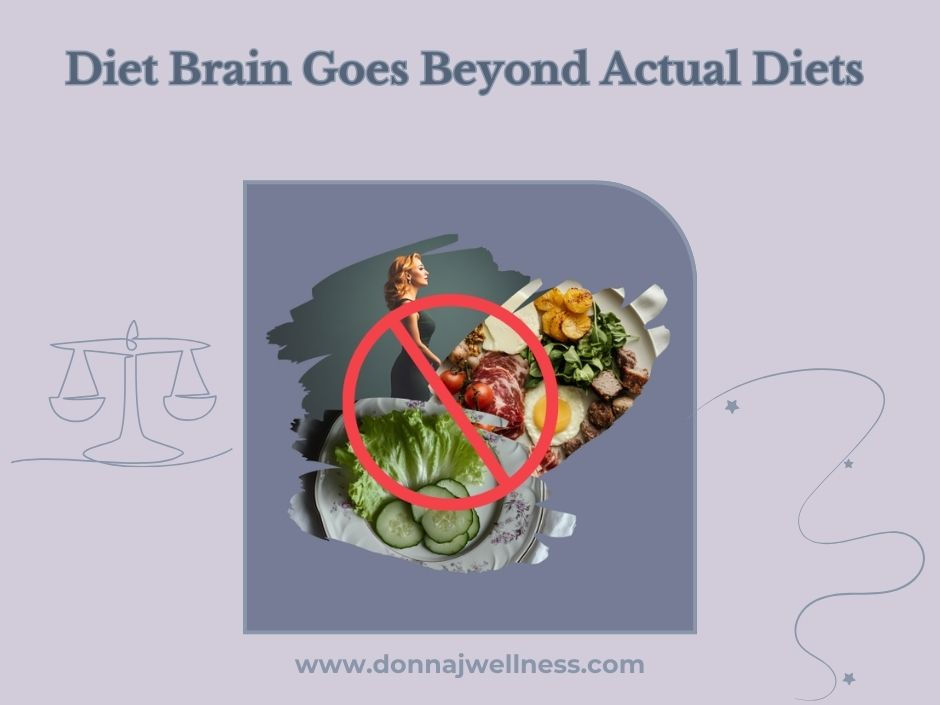
Diet brain is much more than just dieting, it’s about the underlying belief system that drives the behaviors.
It’s the voice in your head that says:
“You need to eat less to lose weight.”
“Carbs are bad; fat is bad; sugar is bad.”
“You’re only doing well if you’re eating clean 100% of the time.”
“You need to be smaller to be worthy.”
This constant stream of negativity and control is exhausting and unsustainable. Diet Brain makes food the enemy, while real health and weight loss are about nourishing your body, finding balance, and living in harmony with your biology—not fighting it.
How Diet Brain Impacts Mental Health
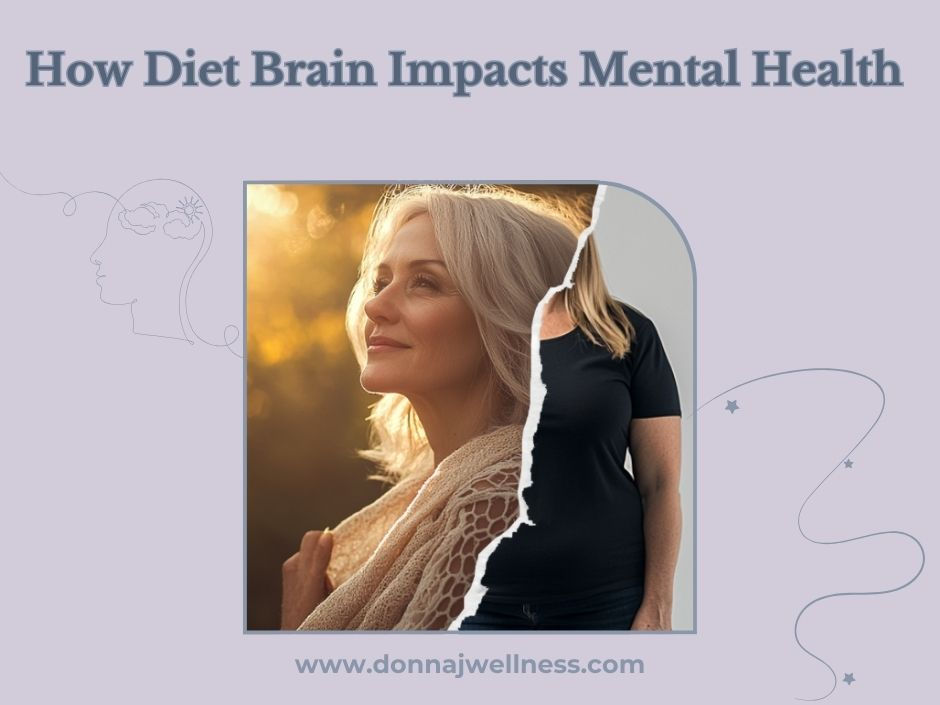
Carrying around this burden of restriction takes a toll on your mental and emotional well-being. It’s no secret that many women feel trapped in a cycle of anxiety, guilt, and shame around food. Diet Brain can lead to emotional eating or disordered eating patterns because of the pressure to “get it right.”
When you wean yourself off Diet Brain, it opens up the space to focus on what truly matters—enjoying your life, eating to fuel your body, and having the energy and mental clarity to pursue your passions. Food becomes part of life, not an obsession that dominates your thoughts.
Reframing the Fear of Hunger
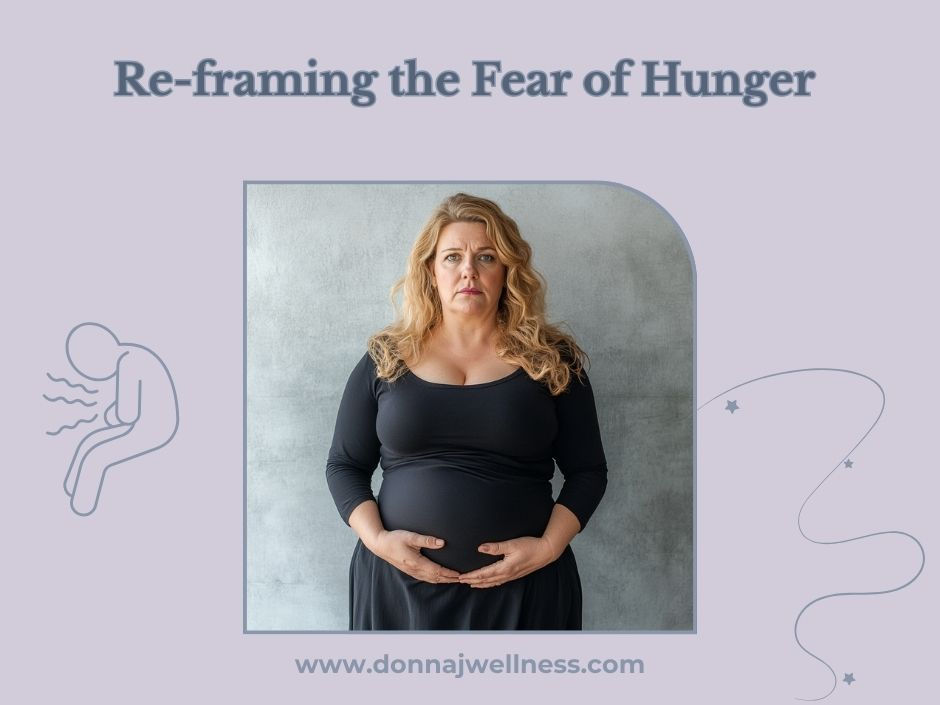
For many women, hunger has been framed as something negative – a signal that you’re failing at your diet or losing control. we’ve been conditioned to believe that hunger is something to fear, suppress, or avoid at all costs.
Diet culture has ingrained the idea that feeling hungry is a sign of weakness, and this fear leads to a constant battle with food and our bodies.
Hunger is a Natural, Biological Signal
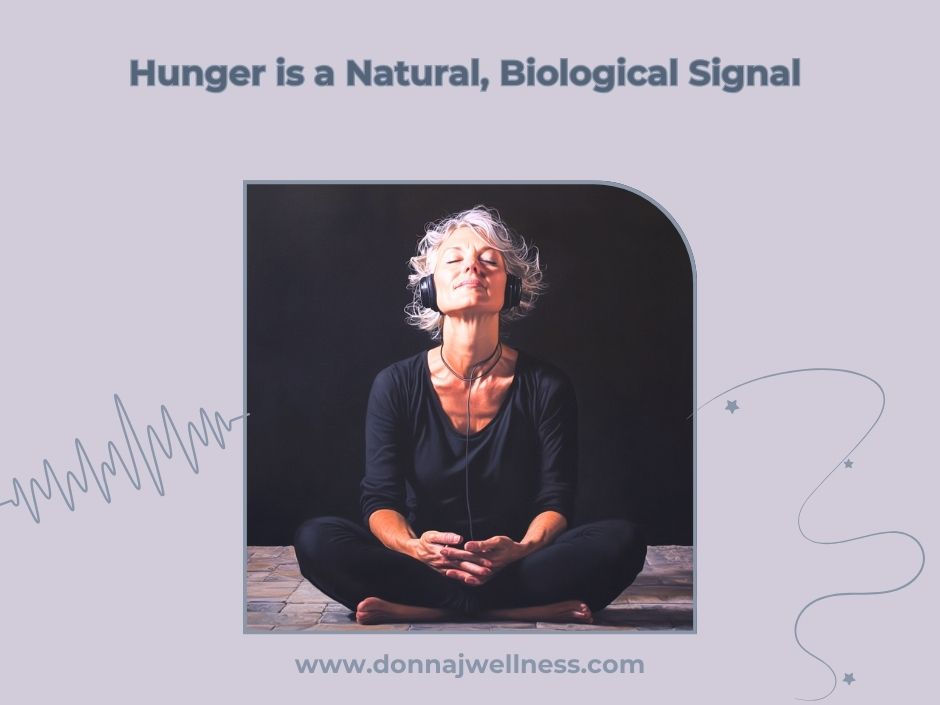
Hunger is a natural, biological signal from your body that needs fuel. When you shift away from Diet Brain you start to see hunger not as the enemy, but as a normal part of life.
Learning to listen to your hunger cues, rather than fearing them, is an essential step in regaining control over your eating habits and trusting your body again.
Hunger Isn’t Bad

Hunger isn’t bad – it’s your body’s way of communicating. When you embrace intermittent fasting, for examples, you’ll notice hunger come and go in waves, and you’ll learn that it’s not something to panic over. Instead, you learn to trust that your body knows when it needs nourishment and when it’s simply adjusting to a new rhythm.
Relearning to Trust Your Body

One of the biggest challenges in moving forward without Diet Brain is learning to trust your body again. Decades of dieting can distort your hunger and fullness cues. You might not even recognize when you're truly hungry because you've spent so long ignoring or overriding those signals.
How To Move Forward Without Diet Brain
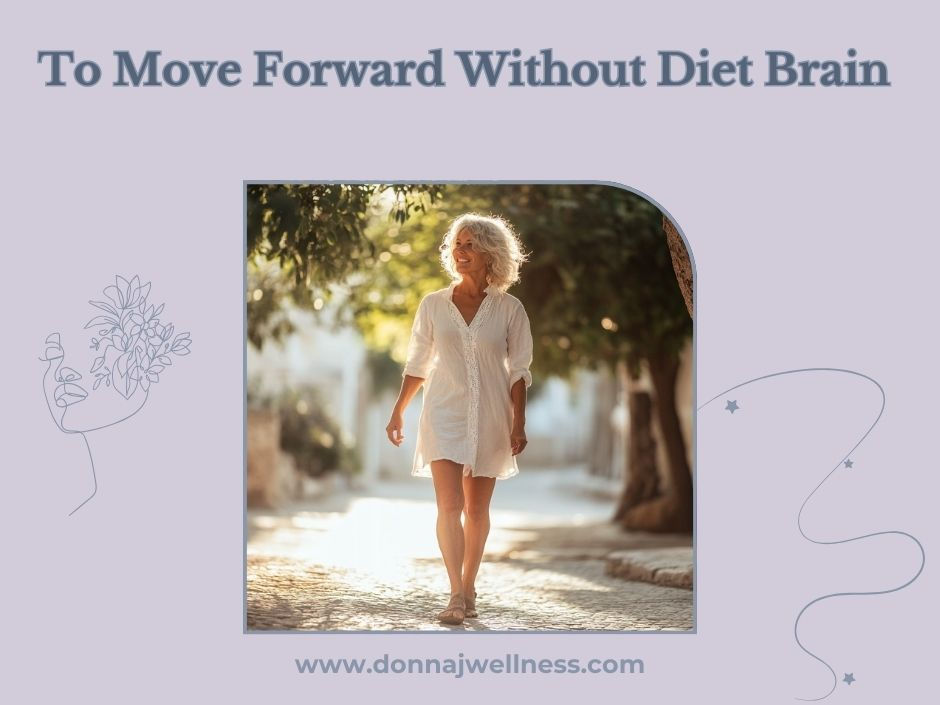
Rebuild Hunger Intuition
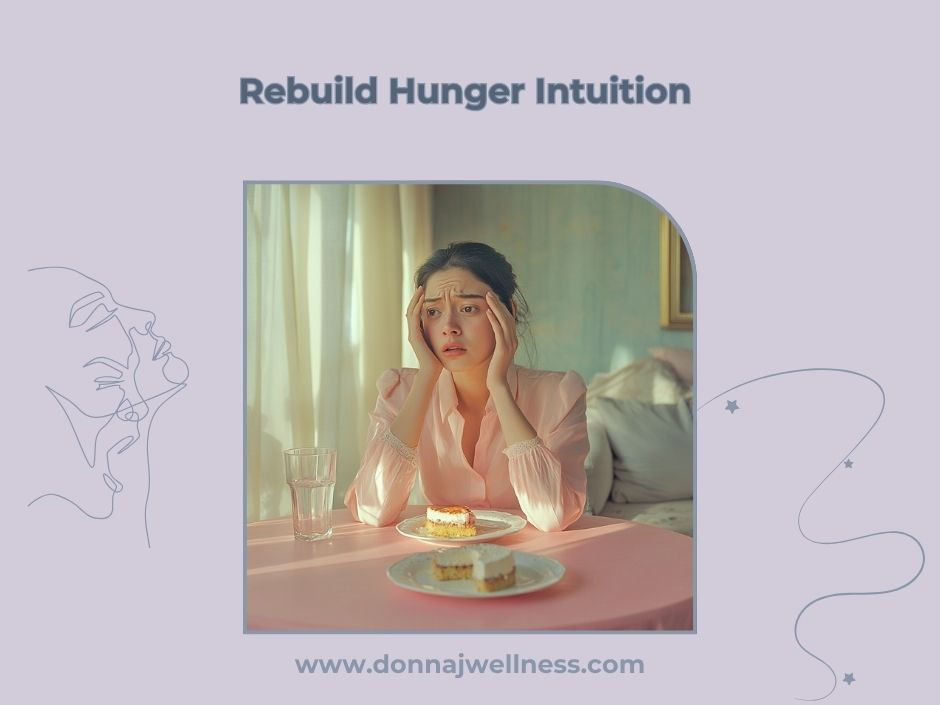
Start small. When you feel hungry, pause and ask yourself, “Am I physically hungry, or is this stress, boredom, or habit?” Learning to differentiate between physical hunger and emotional cravings is key.
Respect Your Fullness

While it sounds simple, stopping when you’re full is a powerful way to reconnect with your body’s signals. Many people with Diet Brain eat past fullness out of fear that they won’t be allowed to eat again soon or because they’ve been in a cycle of restriction and binging.
Practice “Diet” Flexibility
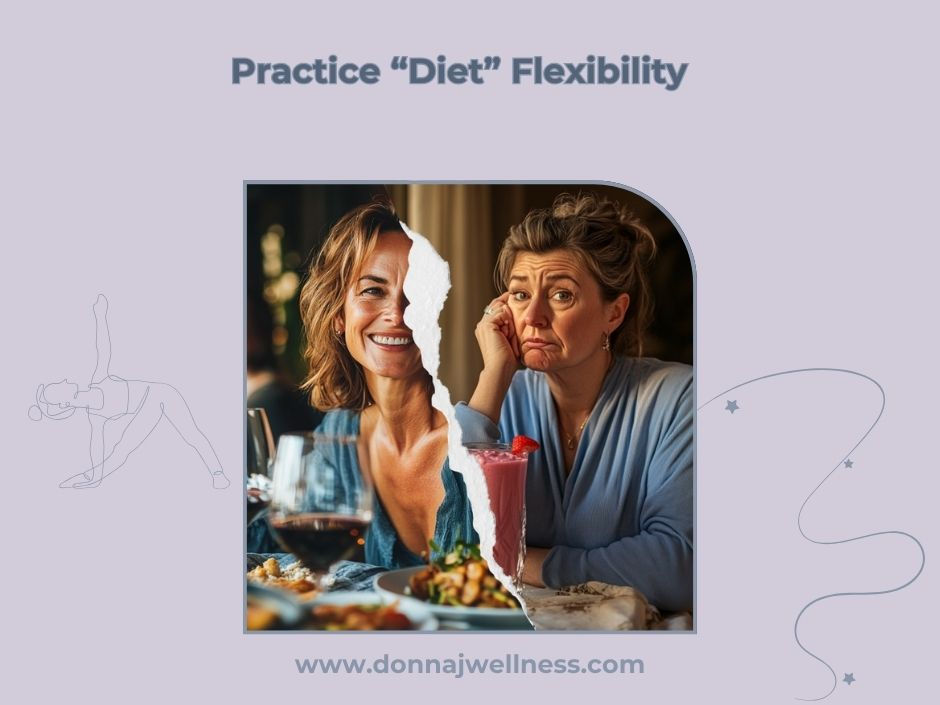
Real health doesn’t require perfection. It’s about balance and understanding that one meal doesn’t define your success. Allow flexibility in your eating habits, where you can enjoy food without guilt or the need to “make up for it” later.
Building a New Approach to Weight Loss
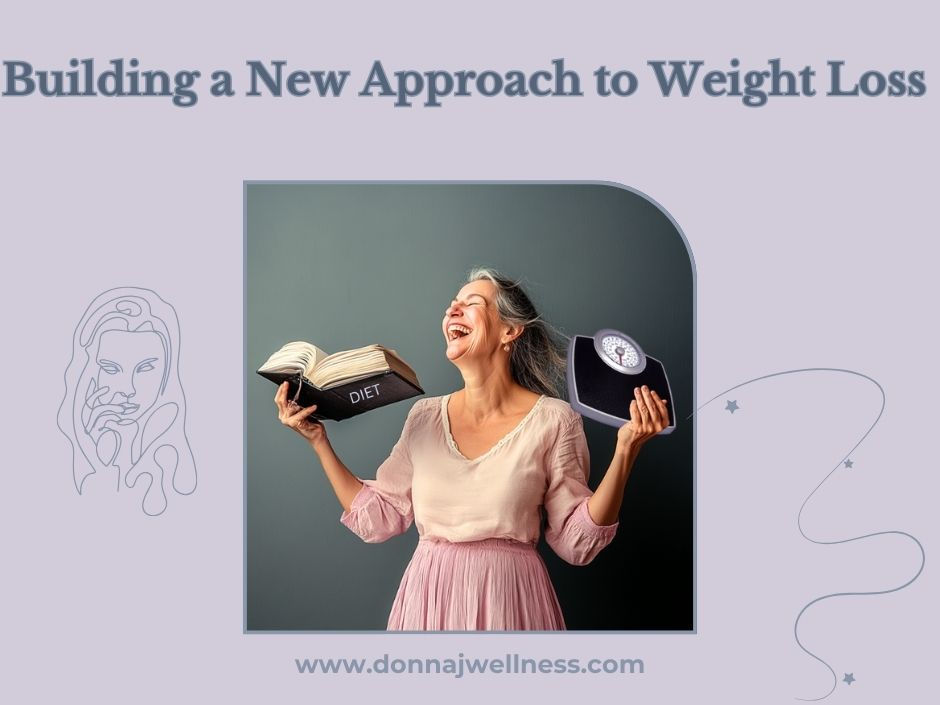
Instead of focusing on calories and food rules, shift to a broader, long-term perspective. Your body is meant to thrive, not survive through constant restriction.
To support that, focus on these pillars:
Whole, Nutrient-Dense Foods
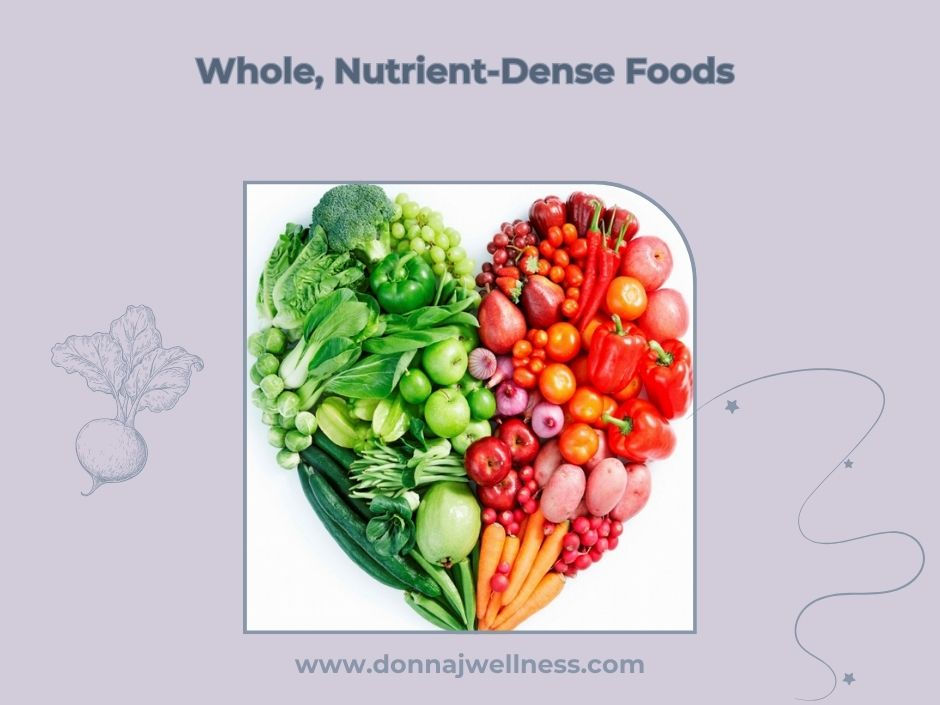
Instead of obsessing over every bite, focus on including more nutrient-dense, whole foods that make you feel good. Think colorful vegetables, high-quality proteins, healthy fats, and unprocessed carbs. Your body thrives when it’s given real nourishment.
Intermittent Fasting
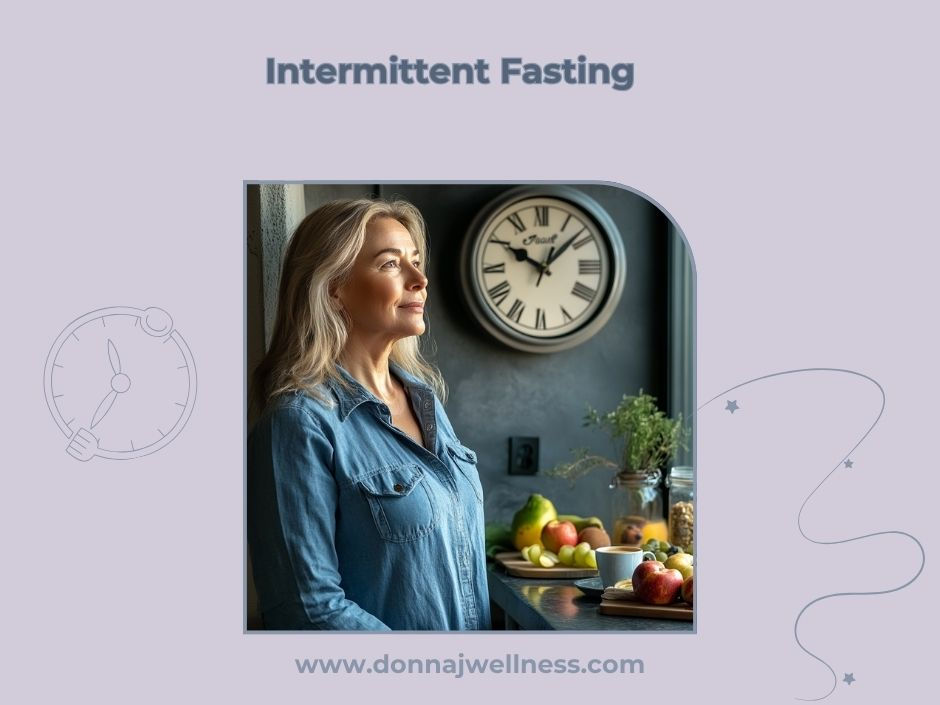
I can’t emphasize enough how powerful intermittent fasting is for women over 40.
It shifts the focus from “what to eat” to “when to eat,” allowing your body to reset, reduce inflammation, and regulate hormones naturally. It also frees you from the constant focus on food and lets you enjoy longer periods of time without having to think about what’s next on the meal plan.
Mindset Shift
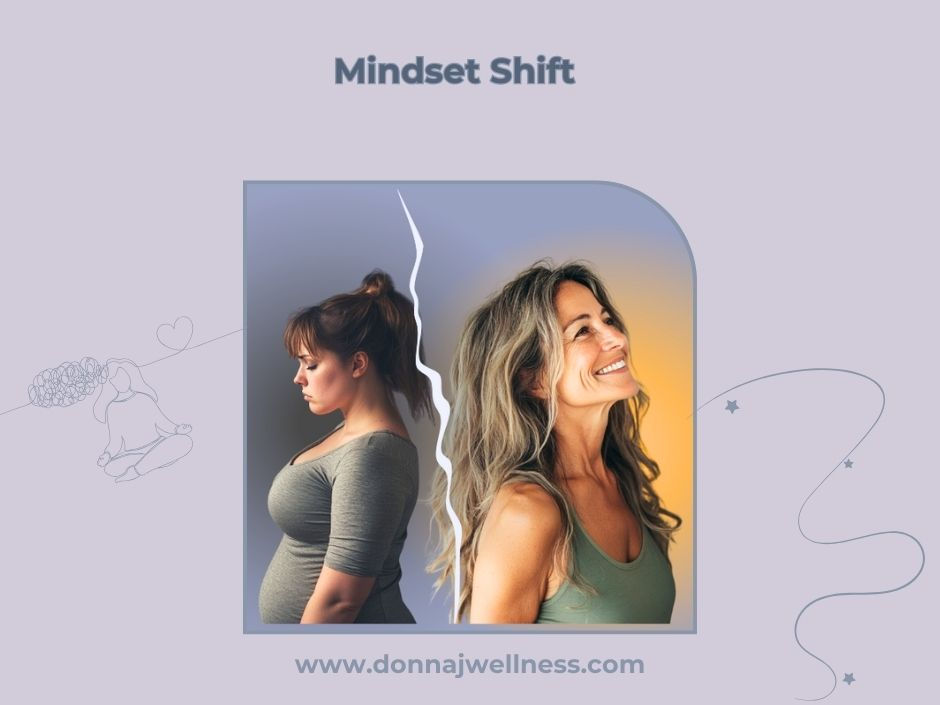
Diet Brain is rooted in the belief that food is the problem. Shifting your mindset to understand that food is not the enemy, and that your body knows what it needs when given the right tools, is liberating. When you stop fighting your body and start working with it, the results are long-lasting.
Focus on Holistic Health

Letting go of diet brain for sustainable weight loss isn’t just about food—it’s also about how you care for your mind, manage stress, and move your body. Incorporate daily movement that you enjoy, prioritize sleep, and practice stress-reducing activities like meditation or deep breathing. This holistic approach to health will far outlast any diet.
Let Go of Diet Brain for Sustainable Weight Loss
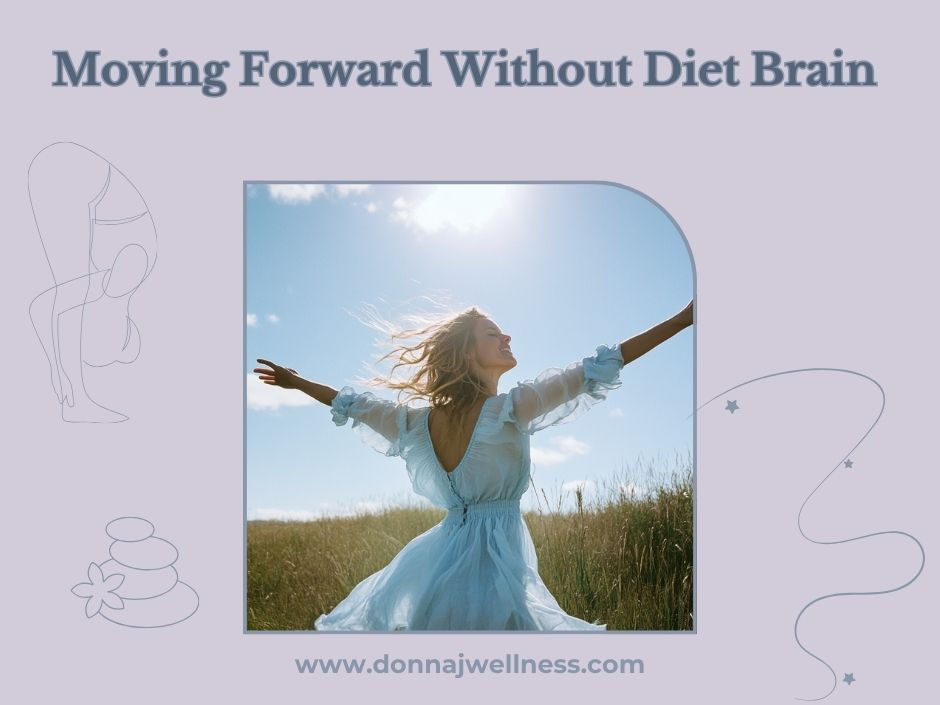
To move forward without Diet Brain, you have to fully let go of the belief that dieting is the answer. Instead, embrace that:
Your body is capable of healing itself when you stop fighting it with restrictions and start nourishing it properly.
Health isn’t defined by a number on a scale or the perfect size. True health is feeling good in your body, having energy, and being able to live life fully.
You can trust yourself around food. When you stop restricting, the need to binge, overeat, or obsess diminishes.
It’s Time to Let Go of Diet Brain
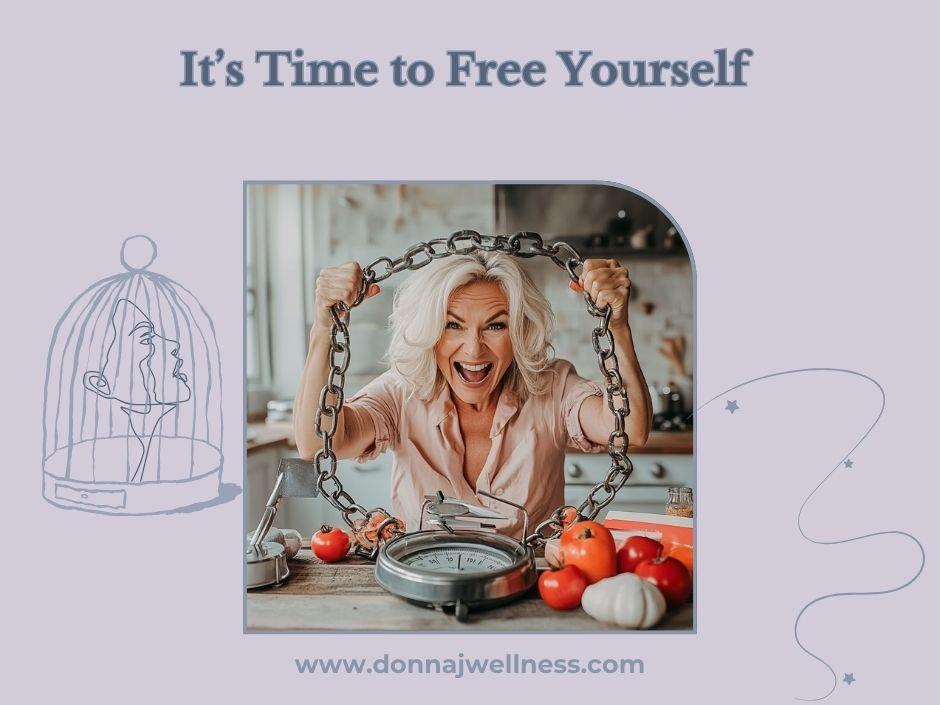
Breaking free from Diet Brain is not just about quitting diets—it’s about freeing yourself from the mental cage that keeps you stuck in a cycle of restriction, guilt, and frustration. The path forward is one of nourishment, intuitive eating, and freedom. It’s about reconnecting with your body, listening to its needs, and trusting that you don’t need to be controlled by diets to be healthy.
Let go of Diet Brain, embrace a life of sustainable health, and start living in alignment with your body. You deserve more than another failed diet—you deserve freedom.
Are you interested in moving past diet brain and learning more about intermittent fasting?
Everything you need to know is contained in my guide “Fasting Made Simple”
Yorumlar